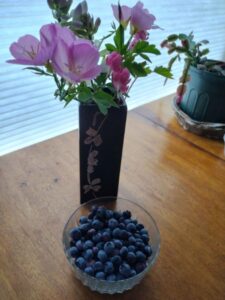Yesterday, as an offering to alums of my MFA program, I had the opportunity to meet with a literary agent to talk about my piano memoir, Imperfect Pitch. I’d sent her some materials in advance–an overview/summary and some sample chapters, but I had no expectation that she would open the conversation by telling me she’d fallen in love with the book and was happily going to take it. Those pipe-dreaming days are long over, and the book has already been rejected by more than 30 agents. The few who took time to actually write back (rather than simply ghost me) all said the same thing. The issue wasn’t the writing–which was strong. The issue was the marketability.
So, not wanting to waste my precious 15 minutes searching for compliments or reassurance, I dived right in. What could I do to make this book more marketable?
Apparently–though not surprisingly–it’s extremely difficult to publish a memoir with a major publisher unless you are already a celebrity. Of course, more people would rather read about Taylor Swift than about me. I know this. The only reason I’ve been trying the “big-time channels” with this book is that I believe its underlying message will inspire and help people who’ve lost their creative north star, as I did in my music life, succumbing to the pressure of perfectionism and performance and losing all joy in the creative process. So I’d like the book to get greater circulation than it would from a smaller press.
“You need to position this more as a self-help book,” the agent told me. “Have more about the overall arc in the first chapter about what the reader will find out, and make it clear to readers that the ultimate payback will be getting permission to go back to something they cared about. Also include some instructions—make them broad, so they can apply to other arts.”
What? Give away the arc in the first chapter? My fiction-writer self is quaking at that comment, which goes against everything I’ve learned–both in my MFA program and way before. It’s hard enough to develop the darn arc. Why would anyone read a book if they already know what’s going to happen?
“In non-fiction, the journey is in the destination,” the agent said. She also suggested not being afraid of name-dropping if I knew anyone in the writing world that I could say would help promote the book. Ha! I know many people in the writing world, but most of them, like me, are not household names. In the music world, though, I do have only a couple of degrees of separation from Yo Yo Ma. I wrote about the time he guest-coached my younger child’s chamber group in the book–but likely he has better things to do, like call attention to repressive immigration policies by playing cello on the U.S./Mexico border.
 Oh well, I’ll tackle that issue later. First, I’ll have to think about the reframing. I’ll keep the current version, just in case, but in general, I like revision, which I think of as re-visiting, rather than correcting something that was previously wrong. I’ve recently discovered that in my piano life, as I re-visit pieces I struggled so hard with four years ago, like Beethoven’s Pathetique, I have a lot more facility in bringing them back. Frequent practicing has made my fingers stronger and more flexible, and I can focus less on the notes and more on the shadings of a piece, how I want to express it, which gets to the soul of the creative process–especially as I’ve learned to let go of the expectation that I’ll play every note and every rhythm perfectly and without bumps.
Oh well, I’ll tackle that issue later. First, I’ll have to think about the reframing. I’ll keep the current version, just in case, but in general, I like revision, which I think of as re-visiting, rather than correcting something that was previously wrong. I’ve recently discovered that in my piano life, as I re-visit pieces I struggled so hard with four years ago, like Beethoven’s Pathetique, I have a lot more facility in bringing them back. Frequent practicing has made my fingers stronger and more flexible, and I can focus less on the notes and more on the shadings of a piece, how I want to express it, which gets to the soul of the creative process–especially as I’ve learned to let go of the expectation that I’ll play every note and every rhythm perfectly and without bumps.
I think this is also true for writing. As I’m working on several projects at once, I’ve become even more aware of the difference in my writing confidence and fluidity between slogging through a first draft of a new novel, and revising a poem or prose piece where I already “know the notes.”
So I’m willing to dive in and try. Maybe this rewrite will feel too loud and brash, or predictable, but maybe I can strike just the right balance between memoir and self-help to please both the publishing gods and my own creative vision–and feel jazzed by the discovery of what my fingers and brain can do.
Here’s pianist Daniel Barenboim playing the Pathetique. Enjoy!



 And when I arrived to take care of Manu, I was greeted by his parents with a strawberry rhubarb pie. (Strawberries are an important birthday theme for me, since it’s strawberry season here in western Mass.)
And when I arrived to take care of Manu, I was greeted by his parents with a strawberry rhubarb pie. (Strawberries are an important birthday theme for me, since it’s strawberry season here in western Mass.)